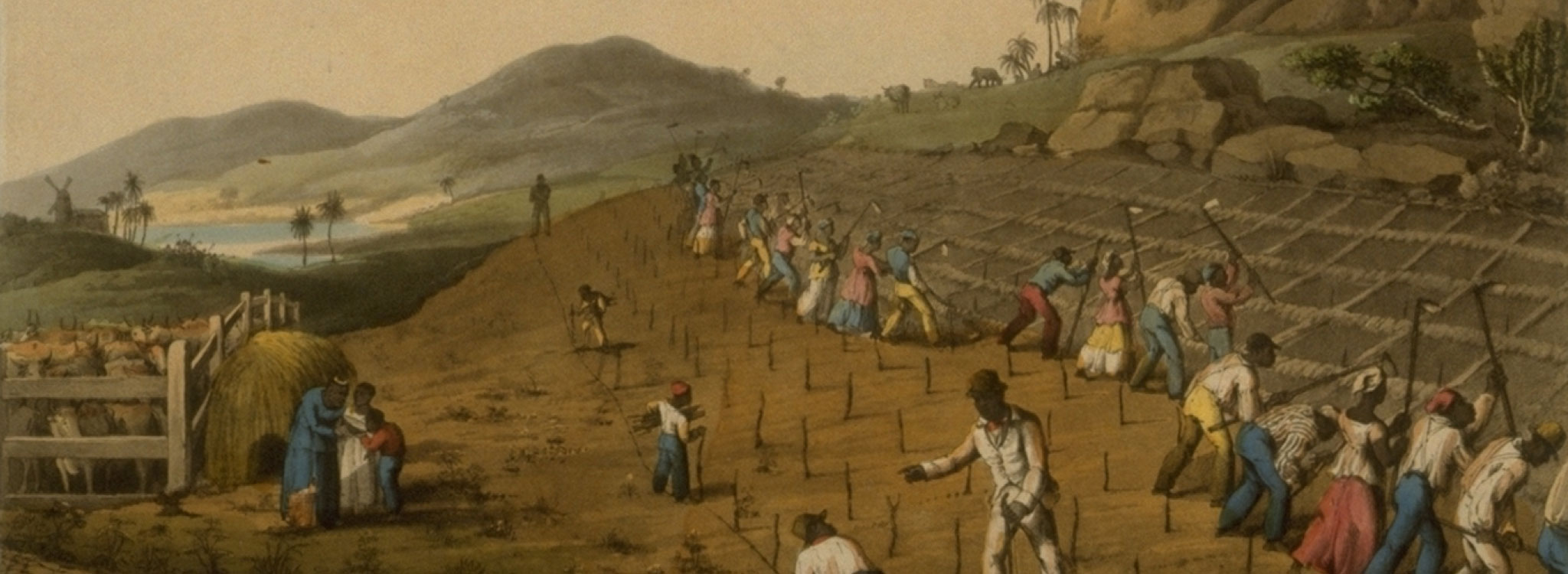Tempie Durham (c. 1834-?) was born Tempie Herndon in Chatham County, North Carolina. All known information about her derives from a Federal Writers’ Project interview that she gave in Durham, North Carolina in 1937. She claimed to be 103 years old at the time of the interview.
Although she shared little about her childhood and did not name her own parents, she went into great detail about her owners, George and Betsy Herndon, who owned a plantation in Chatham County. The Herndon plantation grew corn, cotton, and tobacco, as well as raised cattle, sheep, and hogs. A large slave population was employed to run the Herndon plantation. Durham worked in a large weaving room on the plantation, helping other female slaves weave blankets and winter clothing. In her interview, Durham recalled the singing of the slaves as they worked spinning.
While much of Durham’s memories shed a positive light on her experience as a slave on the Herndon plantation, moments in her interview reveal the powerlessness she and other slaves felt on these plantations. In particular, in discussing her wedding to Exter Durham, a slave on the nearby Snipes Durham plantation in Orange County, although the wedding was held on the front porch of the house and she wore a wedding gown made by her mistress from curtains in the big house, Herndon only allowed the couple to stay together on their wedding night and then forced Exter to return to the Snipes Durham plantation the next day. From that point on, Durham’s husband was only allowed to return to the Herndon plantation on Saturday nights.
In her interview, Durham hypothesized that these weekly visits were allowed by the Herndons to help expand their slave workforce. As she gave birth to nine children before the Civil War, Durham felt that her childbearing abilities made her more valuable in the eyes of her masters. During the war, she remembered that the workers on the plantation had plenty to eat compared with others and she credited that to Herndon remaining at home during the fighting to continue to tend the crops and care for the livestock.
After emancipation, Durham remembered being thrilled that she could finally stay with her husband. They had two more children post-emancipation, totaling eleven children during their marriage. Exter Durham moved onto the Herndon plantation where they remained for several years, entering into a sharecropper agreement, renting the land for a quarter of their profits and over time saving three-hundred dollars to purchase a farm of their own. Although Durham’s recollections seem excessively positive compared to those of other WPA interviewees, she did not deny that her experience may have been exceptional since the Herndons were relatively kind owners. Recollections of Durham and others interviewed by the Federal Writers’ Project provide key testimonies to the era of slavery and the transition to freedom.
Read the full, original biography by Steven J. Niven in the African American National Biography
Online Resources
“Tempie Herndon Durham”: https://www.loc.gov/resource/mesn.111/?sp=289&st=text
Bibliography
Griffin, Rebecca J. “‘Goin' Back over There to See That Girl’: Competing Social Spaces in the Lives of the Enslaved in Antebellum North Carolina.” Slavery and Abolition 25 (Apr. 2004): 94-113.
Niven, Steven J.. "Durham, Tempie Herndon." African American National Biography, edited by Ed. Henry Louis Gates Jr.. , edited by and Evelyn Brooks Higginbotham. . Oxford African American Studies Center, http://www.oxfordaasc.com/article/opr/t0001/e2573 (accessed Thu Sep 05 11:15:03 EDT 2019).
White, Deborah Gray. Aren't I a Woman: Female Slaves in the Plantation South. New York: W.W. Norton & Co., 1985.
Author
Steven J. Niven
Adapted by
Elizabeth Timbs and James Almeida
Contributing Institutions
Hutchins Center for African & African American Research, Harvard University, Cambridge, MA.
Oxford University Press (USA) African American Studies Center.






